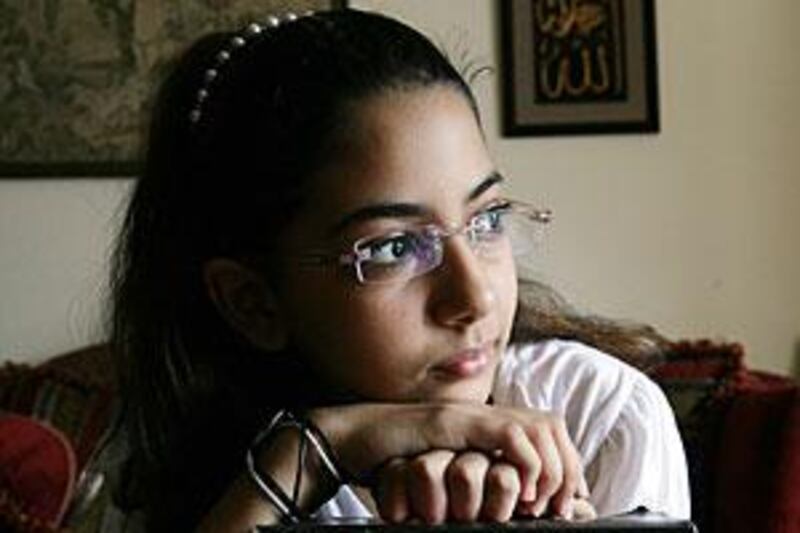Twenty-three is the number of times Noorhan Sami, a 13-year-old Egyptian schoolgirl living in Dubai, has read the four books that make up the Twilight saga, a series of vampire romance novels by the American author Stephenie Meyer. The novels tell of Isabella, a young girl from Arizona, and her love for Edward, a vampire.
Her parents "thought I was obsessed, more like addicted, and they were a bit angry because I wasn't really focusing on my studies, but it was fine," Noorhan said. "The story is compelling, it's intriguing and fun, and it's full of life. It has a mixture of romance, suspense. Edward is old-fashioned, and the way he speaks and her reactions [to him], it's all very attractive. And it's full of vampires too."
Her obsession with Twilight does not mean she has no time for more powerful literary works, however. "I like Pride and Prejudice. It's Jane Austen's best book. And I have Wuthering Heights, but it's a bit hard to read," she said. On the one hand, her parents were happy she took up reading as a hobby, but on the other they wanted her to consider Arabic books. "My dad always tells me I have to read Arabic ... but I don't know about reading Arabic; it just doesn't cut it for me," she said. "My dad told me a couple of days ago that there's this writer who wrote this book that's really hard to understand for young adults, and he said 'I worked hard to write this book so you should work hard to understand it'. And that's plain annoying."
She added: "Personally, I like reading English books because it has an element we don't have. All this suspense and everything, and even though it's fiction, the way they write, it's very compelling. It's nice." "The problem is that they don't like the Arabic language," said Dr Sami Mamoun, Noorhan's father, a dentist. "The Arabic teacher is not good. All studies are in English. They hate Arabic."
Noorhan said she sometimes wished she were non-Arab so she could take the easier Arabic classes in school, as she felt her curriculum was too difficult for her age. Her mother, Dr Iman el-Sayed, a dermatologist, said she felt the school had a role in making Arabic more popular. "I've spoken to the school before that our role is to try and make Arabic more appealing to them because it's our mother tongue," she said. We need to be proud of our language, and it's also OK to know other languages."
Authors also shared the blame, Dr Mamoun said. "Arab authors don't understand teenagers. They don't understand the changes around us. So the children turn to English," he said. This meant that an Arabic book he brought home from Egypt about the Prophet Mohammed's companions sat unread by his children. "I wish they'd read Arabic the same as English," said Dr el-Sayed. "The same? I wish they'd just read one out of 10 in Arabic," Dr Mamoun replied.
The parents said they were happy their daughter was being exposed to other cultures, but they sought to monitor the material she reads. Dr el-Sayed visits the bookstore with Noorhan and flips through books that she wants to buy for up to an hour to see whether they feature dating or other inappropriate things. "I think it's kind of annoying but it's for my own good," said Noorhan. "She understands, and I try to inform her that these things are not part of our religion or society," said Dr el-Sayed.
Dr Mamoun, a long-time reader of Arabic literature, acknowledged that the realities portrayed in Arabic classics, like those by Naguib Mahfouz, may be antiquated. But "if publishers go through our heritage, they will find many beautiful things and wonderful stories."







